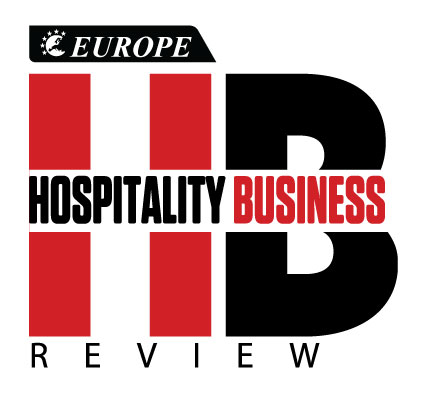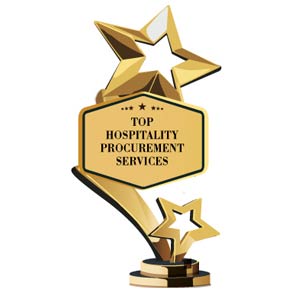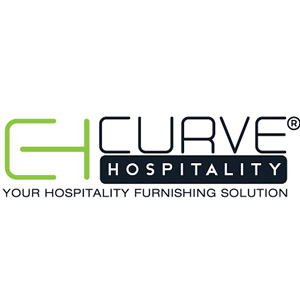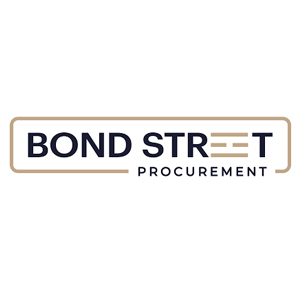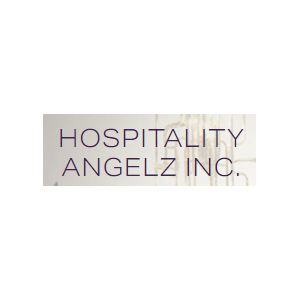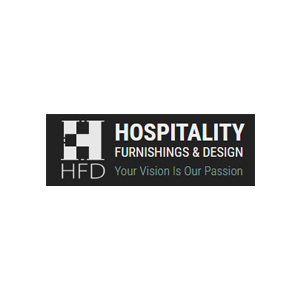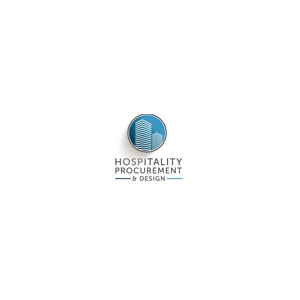\\\\ Top Hospitality Procurement Services \\\\
\\\\\\\\\\ Top Hospitality Procurement Services \\\\\\\\\\
-
Curve Hospitality
Curve Hospitality is a leading hospitality procurement and design firm delivering high-quality, customized FF&E for premier hotel brands. It stands out with a proactive diversification strategy, manufacturing in Vietnam, India, China, Turkey and Domestically to mitigate tariffs and supply chain disruptions while maintaining cost-efficiency, quality, and delivery reliability.
-
Bond Street Procurement
Bond Street Procurement is a leading provider of FF&E procurement services. It specializes in sourcing furnishings and equipment tailored to the unique needs of various industries, including hotels and coliving spaces. Whether custom-made furniture for residential areas or restaurant kitchen equipment, the company ensures that high-quality solutions are procured within budget.
-
Tenderling Brand Strategy and Design
Tenderling Brand Strategy and Design is a premier hospitality branding agency transforming hotels into immersive experiences through compelling storytelling. It crafts unique brand identities that captivate guests by integrating creativity with functionality. With AI-driven innovations and a selective growth strategy, Tenderling ensures lasting impact in an ever-evolving industry.
-
Pineapple Audio
Pineapple Audio is an innovative audio company that blends cutting-edge technology with superior sound quality. Known for creating immersive listening experiences, their products range from wireless headphones to home audio systems, all designed with precision, performance, and sustainability at the forefront of their development.
-
Farrell Flynne
Farrell Flynne specializes in FF&E procurement for ground-up and renovation projects across various real estate sectors, including multifamily, hospitality, student housing, and assisted living. With over 100 projects completed, they emphasize competent project management, transparency, and integrity, ensuring design intent is executed at the best possible price.
-
Hospitality Angelz
Hospitality Angelz Inc. specializes in FF&E and OS&E procurement, project management, and logistics for the hospitality industry. Led by founder Tarlene M. Davis, they leverage over 20 years of expertise and global supplier relationships to deliver cost-effective, high-quality solutions for hotel renovations and new construction projects.
-
Hospitality Furnishings & Design
Hospitality Furnishings & Design (HFD) is an award-winning FF&E design and procurement company specializing in innovative hotel interiors. Their comprehensive services include FF&E procurement, design studio expertise, and project management, ensuring a "Total Quality Experience" from design inception to on-time, on-budget project completion.
-
Hospitality Plus
Hospitality Plus specializes in FF&E procurement, interior design, and project management for hotel renovations and new constructions. With 25+ years of experience, they provide turnkey solutions, including financing, to enhance brand identity and market competitiveness, delivering high-quality, cost-effective results for hospitality clients.
-
Hospitality Procurement & Design
Hospitality Procurement & Design (HPD) specializes in FF&E and OS&E procurement, logistics, and design for hotels, casinos, and resorts. With over 30 years of experience, HPD streamlines new construction and renovations, leveraging industry relationships to deliver competitive pricing, premium offerings, and strategic procurement advantages for clients.
More in News
Elevating Guest Loyalty Through Customised Experiences
Friday, January 23, 2026
The sheer quantity of facilities is no longer the only way to define luxury in today's hospitality and service environment. The ultimate luxury is being recognized now. The industry is shifting from mass-standardization, where the highest virtue was consistency, to hyper-personalization, where recognition and adaptation are the new benchmarks. This change signifies the transition from selling a product (a room, a meal, a seat) to curating an emotion. The ability to customize services has emerged as the main driver of customer loyalty, establishing an exit barrier that is significantly more powerful than any points-based incentive scheme. Operators are turning fleeting consumers into devoted brand ambassadors by including preference into the visitor experience. Harnessing the Power of Predictive Intelligence From the initial booking behaviors to on-property dining choices and post-stay feedback, a rich tapestry of guest preferences is constantly being woven. Advanced Customer Relationship Management (CRM) systems and integrated property management platforms now act as a centralized "brain," aggregating fragmented data points into a coherent, 360-degree guest profile. This allows for the operationalization of preference. It means that when a repeat guest checks in, the system already knows they prefer a high floor away from the elevator, that they are gluten-allergic, and that they typically drink sparkling water rather than still. The "art" here is the seamless delivery of these preferences without the guest ever having to reiterate them. Predictive modeling allows operators to suggest experiences before the guest even realizes they want them. If data indicates a guest frequently books spa treatments at 4:00 PM on business trips, an automated yet personalized offer for that specific slot can be presented upon booking. This level of granular detail signals to the guest that the establishment values their time and understands their unique rhythm. It transforms cold numbers into warm, welcoming gestures, creating a sense of belonging that competitors struggle to replicate. Operationalizing Empathy: The Human Deliverable While technology provides the script, it is the human element that delivers the performance. The most profound shifts in the industry are occurring where high-tech meets high-touch. The goal of technology in this context is not to replace human interaction, but to liberate staff from administrative friction so they can focus on emotional connection. True personalization requires operationalizing empathy. This involves empowering frontline staff—from the front desk to housekeeping and service teams—with the autonomy to act on guest intelligence. When a housekeeper notices a guest is reading a specific author and leaves a bookmark, or when a server recalls a guest's favorite vintage from a visit six months prior, they are engaging in "micro-moments" of recognition. The industry is seeing a trend toward "unscripted service." Rigid Standard Operating Procedures (SOPs) are being replaced by value-based guidelines that encourage staff to read the room and tailor their approach. A business traveler rushing to a meeting requires a different service cadence than a couple on their honeymoon. The art of personalization is the ability to mirror the guest’s emotional state. This requires a culture where information flows freely. Knowledge of a guest’s anniversary, for example, is not siloed at the front desk but is communicated to the restaurant, the spa, and the housekeeping team. When the entire ecosystem conspires to celebrate the guest, the experience feels cohesive and magical. This human application of knowledge validates the guest's identity, making them feel like a distinct individual rather than a room number. It is this emotional resonance that transforms a service transaction into a relationship. From Transactional to Emotional Loyalty The ultimate objective of tailoring services is to evolve loyalty from a transactional exchange to an emotional bond. Historically, the industry relied on "frequency programs"—points, miles, and tiers—to retain business. While these structural benefits remain relevant, they are easily commoditized and matched by competitors. Emotional loyalty is achieved when a guest feels a sense of ownership and psychological investment in a brand. This is built almost exclusively through personalized experiences. When a brand demonstrates that it "gets" the guest, it creates emotional capital. This form of loyalty is resilient. A guest who feels personally cared for is far more likely to forgive minor service lapses than a guest who feels like a number. Personalized experiences also trigger the psychological principle of reciprocity; because the brand has invested effort into understanding the guest, the guest feels a subconscious desire to return that investment through repeat patronage and advocacy. For high-value guests, the perk they value most is not a complimentary breakfast, but the assurance that their specific needs will be met without friction. They return because the hotel or restaurant has become an extension of their lifestyle, a place where they don't have to explain themselves. Ultimately, personalized service increases the guest's Lifetime Value (LTV). By consistently tailoring the experience, operators stop fighting for "share of wallet" and start winning "share of heart." In a saturated market, the ability to make a guest feel uniquely seen and valued is the most sustainable competitive advantage available.
Hotel Marketing Trends to Boost Revenue
Thursday, January 22, 2026
Fremont, CA: The hotel business has undergone substantial changes. Performance swings have differed by season, year, and market, but the state of affairs has remained stable. Three key elements—consistency, planning, and impact—allow us to use marketing tactics to increase income as the sector has identified new demand periods. Consistency plays a crucial role in marketing efforts. Ensuring uniformity in branding, imagery, and messaging across all platforms fosters trust among previous and current guests. Timely and relevant communication keeps your hotel at the forefront of potential guests' minds. It is equally vital to target the appropriate customer at the right moment consistently. Ongoing exposure cultivates brand recognition, trust, and loyalty, increasing the likelihood that guests will consider your hotel when making reservations. Digital advertising is one of the most effective methods to achieve this goal. Digital Marketing: In the contemporary digital landscape, marketing is essential in influencing customer experiences. Hotels must engage with potential guests during the initial phase of their travel planning—when they contemplate their destination and timing—by connecting with tech-savvy travelers at this critical juncture. To effectively shape consumer behavior and enhance revenue, hotels can utilize various technological advancements, including Mobile Optimization and Virtual Reality (VR) Tours. Digital Paid Advertising: The subsequent phase in digital marketing involves digital paid advertising, explicitly focusing on targeted advertising and personalization. Digital marketing empowers hotels to develop advertising campaigns tailored to specific demographics, consumer behaviors, and interests. This precision guarantees that appropriate messages are delivered to the relevant audience segments, enhancing the likelihood of converting prospective guests or generating sales. Achieving this effectively requires a comprehensive understanding of the audience, particularly the hotel’s primary feeder markets. Personalization and search engine optimization are the two different methods of digital paid advertising. Leveraging Social Media and Influencer Marketing: Social media platforms have emerged as significant marketing assets for hotels. They provide avenues for direct interaction with former, present, and prospective guests, highlight distinctive services, and foster brand loyalty. Hotels can capitalize on social media and influencer marketing to enhance revenue by utilizing Visual Storytelling, User-Generated Content (UGC), and Influencer Partnerships. Sustainability: Sustainability has surfaced as a paramount concern for travelers worldwide. Establishments that implement environmentally responsible practices can appeal to eco-conscious patrons and distinguish themselves in a competitive landscape by highlighting their dedication to sustainable initiatives. Among the various strategies for sustainable tourism are Green Certifications, Eco-Friendly Amenities, and Community Engagement.
Elevating Brand Experience Through Professional Event Teams
Wednesday, January 21, 2026
Fremont, CA: Behind every seamlessly executed, memorable event—be it a glittering product launch, a high-stakes conference, or an elegant wedding—lies a crucial, often overlooked factor: professional event staffing. While the venue, catering, and décor are the visible elements of success, the staff is the invisible infrastructure that truly shapes the guest experience, transforming potential chaos into a structured, delightful reality. More Than Just Serving: The True Role of Event Staff Event staff are far more than functional helpers—they are the living embodiment of your brand and the operational backbone of your event. From the moment guests arrive, their demeanor, professionalism, and efficiency shape first impressions and set the tone for the entire experience. A warm smile, confident direction, and prompt assistance from an usher or greeter instantly communicate organization and hospitality, ensuring attendees feel welcomed and at ease. Beyond front-facing duties, experienced event staff manage complex logistics with precision. They oversee guest flow, troubleshoot technical issues, and address security concerns swiftly and discreetly—keeping operations seamless even under pressure. Every detail —from their attire to their communication style —reflects the event’s theme and your brand identity. In essence, they are not just part of the event—they are the event, embodying its values and ensuring its flawless execution. The Direct Link Between Staff and Guest Experience The quality of event staffing directly determines the guest experience. Even the most carefully planned event can falter if the team executing it is untrained or uncoordinated. Skilled professionals, on the other hand, create a sense of ease and flow that enhances every guest interaction. A well-prepared team ensures guests never feel lost or frustrated. Efficient service—whether at registration, the bar, or the coat check—prevents bottlenecks and keeps energy high. Clear, strategic staff positioning minimizes confusion, while their attentiveness allows attendees to fully engage with the event's purpose, whether it’s networking, learning, or celebrating. What truly sets professional staff apart is their ability to anticipate needs and manage the unexpected. Trained to read the room, they often fulfill guest needs before a request is even voiced—offering assistance, refreshments, or guidance intuitively. When challenges arise —such as a spill, a power glitch, or a minor emergency —they respond calmly and efficiently, preserving the event’s flow and discretion. For VIPs, personalized attention and dedicated service elevate the experience further, reinforcing exclusivity and leaving a lasting impression of excellence. Ultimately, the dazzling success of any event is not merely a result of its budget or its beautiful components, but the quality of its human capital. Professional event staffing is the unsung heroes—the skilled architects of positive guest experiences. They are the essential link that translates a planner's vision from paper to seamless reality. By investing wisely in this hidden backbone, event hosts and organizers are not just hiring hands; they are securing an insurance policy for their brand's reputation and guaranteeing that every attendee leaves with the desired memory: one of polished execution, attentive service, and undeniable quality. The staff is the final, most impactful touchpoint, proving that in the world of successful events, service isn't just a requirement—it's the supreme differentiator.
Flexible Staffing Models: The New Backbone of Hotel Workforce Strategy
Tuesday, January 20, 2026
The hospitality sector, characterized by its unwavering dedication to guest experience, is currently undergoing a significant paradigm shift in its approach to workforce management. Traditional, inflexible staffing paradigms are progressively being supplanted by more adaptable and responsive flexible staffing models. This evolution represents not merely a reactive measure to market volatility but a strategic imperative, enabling hotels to prosper amidst an environment of continually evolving consumer preferences and economic fluctuations. Consequently, flexible staffing is no longer a marginal consideration but is rapidly emerging as the fundamental framework for a robust and forward-looking hotel workforce strategy. Understanding the Variability of the Hospitality Industry The fundamental driver behind this shift is the inherent variability of the hospitality industry. Occupancy rates can ebb and flow dramatically, influenced by seasonality, local events, and broader economic trends. A flexible workforce allows a hotel to scale its staffing levels up or down in direct response to these fluctuations. This adaptability ensures that the correct number of staff with the right skills are available at the proper times, optimizing labor costs without compromising on the quality of service. During peak periods, a hotel can seamlessly augment its core team to meet heightened demand, ensuring that every guest receives the attentive service they expect. Conversely, during quieter times, the workforce can be scaled back, preventing overstaffing and the associated financial strain. Enhancing Guest Experience Through Agility This operational agility translates directly into a more consistent and elevated guest experience. When a hotel is appropriately staffed, every touchpoint of the guest journey, from check-in to housekeeping to dining, is managed efficiently and professionally. Guests are not left waiting at the front desk due to a shortage of receptionists, nor do they find service in the restaurant slow because the food and beverage team is stretched thin. A well-managed, flexible workforce ensures that service standards are not only met but consistently exceeded, thereby fostering guest satisfaction and loyalty. By having the ability to bring in specialized skills as needed, hotels can also enhance their offerings for specific events or cater to unique guest requirements, further personalizing the experience. Beyond the significant operational and guest-centric advantages, flexible staffing models are reshaping the employee experience for the better. The modern workforce increasingly values autonomy and a healthy work-life balance. Flexible work arrangements, such as part-time schedules, on-demand shifts, and cross-training opportunities, empower employees with greater control over their professional lives. This can lead to higher job satisfaction, increased motivation, and a more engaged and productive team. A positive and supportive work environment, where employees feel their personal needs are respected, cultivates a stronger sense of loyalty and reduces turnover, a persistent challenge in the hospitality sector. The Role of Technology in Workforce Management A strategic and holistic approach underpins the successful integration of flexible staffing models. It begins with a deep understanding of the hotel's unique demand patterns, leveraging historical data and predictive analytics to accurately forecast staffing needs. This data-driven approach allows for proactive workforce planning rather than reactive hiring. Building a diverse talent pool is another crucial element. This includes a core team of full-time employees who embody the brand's culture and values, supplemented by a reliable network of part-time, temporary, and on-call professionals. Technology plays a pivotal role in the seamless management of a flexible workforce. Modern workforce management systems enable efficient scheduling, real-time communication, and streamlined payroll processes. Mobile applications allow employees to view their schedules, request extra shifts, and communicate their availability, fostering a sense of empowerment and engagement. These technological tools not only enhance operational efficiency but also provide valuable data and insights that can be used to refine staffing strategies further. Maintaining a consistent brand identity and high service standards with a flexible workforce requires a robust training and development framework. A comprehensive onboarding process that instills the hotel's core values and service standards in all team members, regardless of their employment status, is essential. Cross-training programs not only provide greater flexibility in staff deployment but also offer employees opportunities for skill development and career growth. By investing in the continuous training of the entire workforce, hotels can ensure that every team member is a true ambassador of the brand. The integration of flexible staffing models signifies a pivotal transformation in the hotel industry's approach to human capital management. This strategic departure from rigid, standardized structures fosters a more efficient and employee-centric framework. By adopting flexibility, hotels can navigate market unpredictability with enhanced agility, consistently deliver exceptional guest experiences, and cultivate a more engaged and motivated workforce. As the hospitality landscape continues to evolve, entities that have established their workforce strategy upon the robust and adaptable foundation of flexible staffing will be optimally positioned for sustained success and expansion.
The New Food Economy: Ghost Kitchens and Hybrid Catering
Monday, January 19, 2026
Fremont, CA: Digital ordering and changing consumer behavior are driving the culinary landscape. Ghost kitchens, sometimes referred to as delivery-only kitchens, and hybrid catering models are at the center of this shift. These cutting-edge methods are radically changing the way food is produced, served, and eaten, enabling companies to grow while significantly lowering operating costs. The Rise of the Ghost Kitchen: Lean, Mean, and Digital The emergence of the Ghost Kitchen has redefined the dynamics of modern food service. These facilities eliminate the need for dining spaces, front-of-house staff, and traditional customer-facing operations, allowing for a leaner, technology-driven model. Often hosting multiple virtual brands under one roof, Ghost Kitchens optimize efficiency, reduce costs, and accelerate time-to-market. The most notable advantage lies in the significant reduction of overhead expenses. Without the burden of prime-location leases, dining room furnishings, or extensive staffing, operators enjoy far lower capital expenditure and operational costs compared to traditional restaurants. Ghost Kitchens benefit from location flexibility, choosing spaces based on proximity to customers and delivery routes rather than foot traffic, thereby enabling operations in cost-effective industrial or non-commercial zones. This model also fosters rapid market experimentation, empowering businesses to launch and test multiple virtual brands—from burgers to salads—within a single facility and adapt offerings swiftly based on delivery data and emerging trends. Once a virtual brand demonstrates success, scalability becomes seamless, with additional production capacity easily established across multiple ghost kitchen locations. Perhaps most transformative is the redefinition of reach—from physical presence to digital visibility—where success is determined by the range of delivery apps rather than the prominence of a storefront. This marks a crucial shift in the food service industry, as a single Ghost Kitchen can now cater to tens of thousands of customers across a wide geographic radius. Hybrid Catering Models: Maximizing Underutilized Assets While Ghost Kitchens focus on streamlining delivery operations, Hybrid Catering Models aim to enhance revenue generation by leveraging existing physical infrastructure—such as restaurants, hotels, and corporate cafeterias—during off-peak hours or for specialized services. This approach reimagines physical venues as rentable, certified commercial kitchens, fostering flexible partnerships between operators and space owners. In practice, this includes shared kitchen arrangements, where a traditional restaurant rents out its space during idle periods—for example, a breakfast café operating as a delivery-only venue at night. Similarly, pop-ups and takeovers enable brands to temporarily utilize another venue’s kitchen to test new markets, host events, or introduce limited-time menus. At the same time, larger operators and hotels may convert underused banquet kitchens into dedicated hubs for delivery fulfillment and large-scale catering. The hybrid model stands as an exercise in both efficiency and risk reduction: for venue owners, it transforms dormant spaces and equipment into new income streams, while for food operators, it provides access to fully equipped, compliant facilities without the capital burden of construction or long-term leases. Increasingly, the most successful food enterprises are integrating Ghost Kitchens and Hybrid Catering Models to create a flexible, scalable ecosystem. Ghost Kitchens serve as centralized production hubs in key urban areas, while hybrid arrangements extend reach into secondary markets and support event-based catering. Together, these models represent a synergistic evolution in the food service industry—balancing operational efficiency, adaptability, and strategic growth in an increasingly digital and on-demand marketplace. The Ghost Kitchen and Hybrid Catering Model revolution is here to stay. They offer a financially sustainable blueprint for the future of food service—one that prioritizes efficiency, flexibility, and a laser focus on the customer's digital journey.
Hospitality as a Platform: Reimagining the Hotel as a Lifestyle Ecosystem
Friday, January 16, 2026
The traditional hotel model is evolving from a basic room-for-night transaction into a new paradigm — Hospitality as a Platform. In this model, the physical hotel building is no longer just a collection of rooms; it is a flexible, multi-purpose hub designed to meet the holistic needs of both transient guests and the local community. Forward-thinking hospitality management firms are aggressively moving beyond their core competency of "heads in beds." They are re-architecting their service offerings to create integrated, lifestyle-driven ecosystems. This strategic pivot involves weaving premium food and beverage (F&B), holistic wellness, and flexible coworking spaces into the brand's core identity. The objective is no longer just to sell a room but to capture a guest's entire daily spend—and that of their neighbors—by creating a centralized ecosystem for living, working, and connecting. This evolution is not merely an expansion; it is a redefinition of the asset itself, transforming a traditionally fixed-cost, occupancy-dependent business into a diversified, resilient, and far more profitable platform for lifestyle services. For decades, the primary metric of success in hospitality was Revenue Per Available Room (RevPAR). This naturally focused all management energy on room pricing and occupancy. Ancillary services, such as the hotel restaurant or business center, were often viewed as necessary amenities or even loss leaders, designed solely to support the core business of room sales. The platform model fundamentally inverts this thinking. The new goal is to maximize Total Revenue Per Available Square Foot (TRevPASF). This metric forces a reappraisal of every part of the hotel: lobbies, rooftops, basements, and even closets are now seen as potential revenue-generating assets. Management firms are engineering this shift by recognizing that modern consumers, whether traveling for business or leisure, no longer operate in silos. The lines have blurred. A business traveler is also a wellness enthusiast. A leisure traveler may need to work for a few hours. And a resident may desire a high-end gym, a "third space" to work from, and a destination restaurant—all of which the new hospitality platform can provide. F&B as a Cultural and Commercial Anchor The most visible transformation is in Food & Beverage. No longer a standardized, beige hotel restaurant, F&B is being reimagined as a primary cultural anchor and a robust commercial engine. The goal is to create "destination" concepts that are so compelling they draw in the local community, generating buzz and energy that, in turn, make the hotel more attractive to overnight guests. In the platform model, F&B moves from a simple amenity to a diverse portfolio of curated experiences. Lobbies are being reborn as "social lobbies"—dynamic, all-day spaces that transition seamlessly from an artisanal coffee bar in the morning to a craft cocktail lounge at night. This approach activates what was once transient "dead space," turning it into a high-margin social nexus. Management firms are embracing multi-concept strategies within a single property. A hotel might now feature a signature rooftop bar, a grab-and-go market with locally sourced goods, a "ghost kitchen" concept for room service and local delivery, and a fine-dining restaurant. Each of these outlets is designed to stand on its own commercially, capturing different market segments and dayparts, and ensuring the F&B division is a formidable profit center in its own right. Wellness as a 360-Degree Value Proposition The concept of "wellness" in hospitality has evolved far beyond a windowless basement gym. Today, wellness is a 360-degree value proposition that is deeply integrated into the entire guest experience, reflecting a profound consumer shift toward health and self-care. This new holistic approach touches every department. It begins with the room, which may feature in-room mindfulness content, circadian-rhythm lighting, and air-purification systems. It extends to F&B, with "clean," nutrition-focused menus and non-alcoholic beverage programs. The centerpiece, however, is the expansion of the wellness facilities themselves. Hotels are now investing in state-of-the-art fitness centers that rival private health clubs. These spaces are not just for guests; they are a key driver of local membership programs. By offering high-tech equipment, group classes such as yoga and spinning, and spa services, the hotel's wellness center becomes another robust non-room-revenue stream. This strategy provides a recurring, subscription-based income that smooths the peaks and valleys of seasonal occupancy. Co-Working and the Monetization of the "Bleisure" Economy The global rise of remote work and the "digital nomad" lifestyle has presented hospitality with one of its most significant opportunities. The traditional "business center" with a shared printer is extinct. In its place, hotels are integrating sophisticated, flexible co-working solutions. This integration takes many forms. At its simplest, it involves redesigning lobbies and public spaces with ample power outlets, high-speed internet, and bookable "pods" for private calls. This immediately encourages guests—and locals—to work from the hotel, driving steady F&B sales during typically slow daytime hours. More advanced models include dedicated co-working floors with their own membership structures. Locals can purchase a monthly pass for workspace access, which provides for an F&B discount and, perhaps, gym access. This "work-from-hotel" model is a powerful B2B and B2C offering. It allows the hotel to monetize its square footage during the day, capture the lucrative "bleisure" (business + leisure) traveler, and deeply embed itself in the local professional community. For hospitality management firms, this evolution from hotel operator to ecosystem curator is the key to future growth and asset value. The strategy is to create a seamless, technology-enabled environment where one service organically flows into the next. By integrating F&B, wellness, and co-working, management firms are building defensible, lifestyle-centric brands. They are creating diversified revenue streams that are not solely dependent on travel patterns, making their assets more resilient. The hotel of the future is no longer just a place to stay; it is a place to be —a hub of activity and the new center of the modern urban experience.
